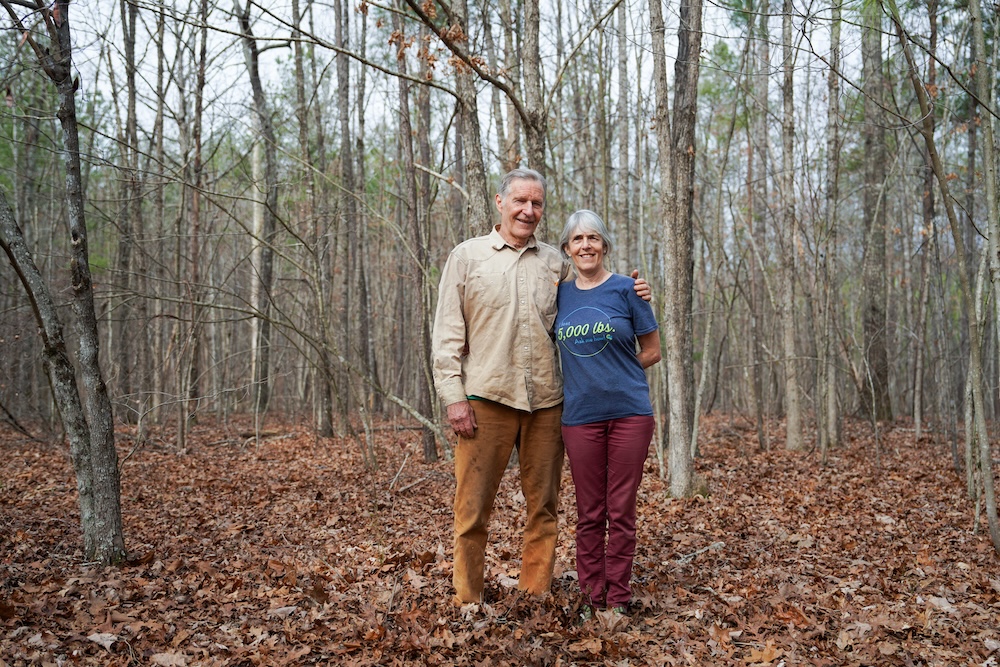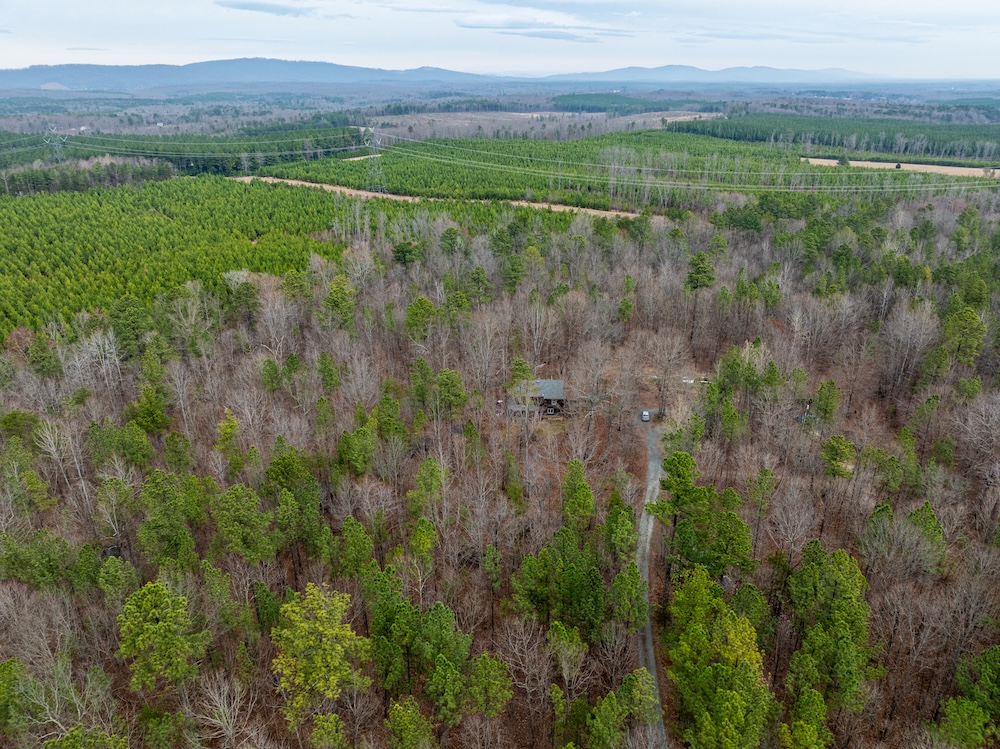Deep within the center of a former 1,200-acre monoculture pine plantation-turned-utility-scale solar project lies a donut hole of amazing, permanently protected natural hardwood forest. It exists because Christine and Bob Putnam took yet another of their many steps of fierce commitment to the environment and to Albemarle County by placing their 70 acres of forestland into a conservation easement with the Albemarle County Easement Authority last year.
“It’s some dream that my mom had, being able to be realized in the end, that makes me want to cry thinking about it,” Christine said. “She just loved the idea of the natural space being conserved.”

It doesn’t take long, sitting by the house amongst the trees towering upward to notice the many varieties of birdsong, critters rustling, and insects crawling and flying around the plants and trees. This is exactly what the Putnams intended when they moved onto the property shortly after it had been logged. They refused to replant a monoculture of pines, instead relying on the existing seed bank in the soil to regenerate with hardwoods, as all logged forestland has the potential to do, and encouraged growth of a natural, mixed deciduous forest.
Unfortunately, it is surrounded on all sides by the opposite as land use change continues to convert much of the natural land cover in the area, resulting in pollution and a lack of diverse habitats to support biodiversity.
“All the wildlife depends on this forest,” Bob said. “They can’t eat anything from the monoculture yellow pine plantation; it’s like a desert. So basically this little island of native forest is what supports most of the wildlife in the region right now.”

Within the last few decades, hundreds of acres of forest like the Putnams’ were bought up and turned first into pine plantations and later utility-scale solar. They would get near-daily solicitations inquiring about their “empty lot.” But they knew their land wasn’t empty; it was essential to the natural world.
Piece by piece of conserved land, no matter the size, makes a difference to the landscape. So The Piedmont Environmental Council assisted the Putnams in thinking through land conservation options. They ultimately conserved their land with the Albemarle County Easement Authority, a local county program that protects land in the county’s rural area, even smaller parcels like the Putnams’. Now, gratefully, the solicitations skip over their property once and for all.
“So all this transformation occurs, but right here, it’s going to stay the same; that’s what’s so important about being in the conservation easement,” Bob said. “This is an island of native wildlife and flora.” Forever.
This article appeared in the 2025 Spring edition of The Piedmont Environmental Council’s member newsletter, The Piedmont View. If you’d like to become a PEC member or renew your membership, please visit pecva.org/join.
